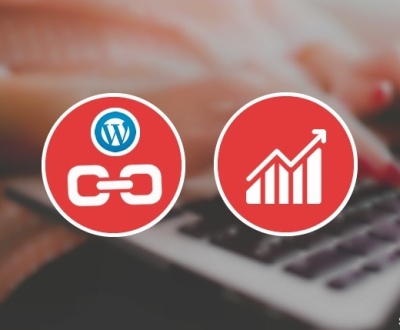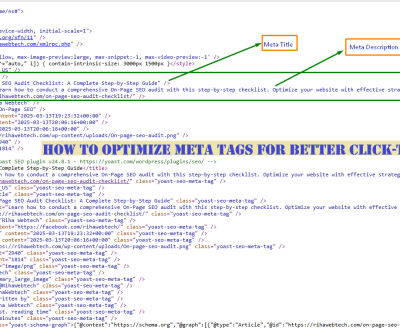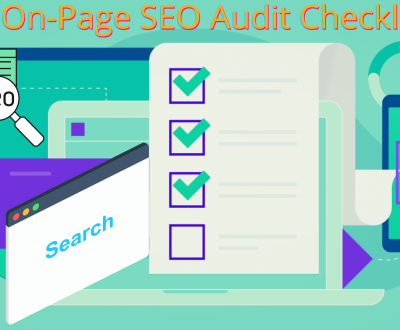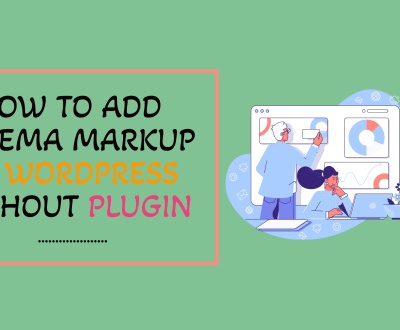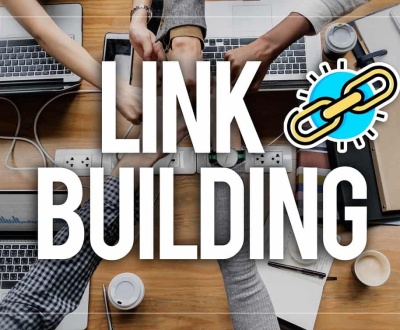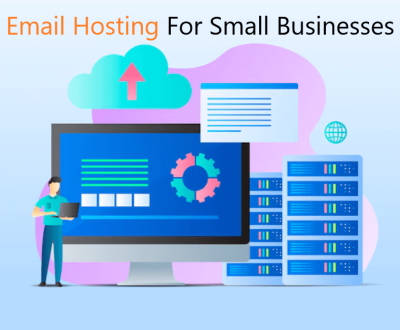Revolutionize Your Ecommerce with the Best Free Website Builder
A free website builder may not be the best choice for ecommerce. Instead, investing in a paid platform can offer greater capabilities for selling products online.
Online businesses are on the rise, and ecommerce is among the most popular niches for entrepreneurs looking to cash in. However, choosing the right platform to build your online store can be daunting. While the prospect of using a free website builder may seem appealing, it’s important to carefully consider your needs and options.
While free builder options exist, a lot of them lack feature-rich ecommerce capabilities, which may hurt your sales and overall user experience. Paid platforms, on the other hand, offer more control and customizability, making your online store more appealing to your customers. In this article, we’ll explore the pros and cons of using free website builders for ecommerce and whether they’re really the best choice.

Credit: www.shopify.com
Choosing The Best Free Website Builder For Your Ecommerce Business
Factors To Consider When Choosing A Website Builder
A website builder can help you set up and maintain your ecommerce website without the need for advanced technical skills. When choosing a website builder, you need to consider certain factors:
- Ease of use: Look for a website builder that is easy to use and offers a user-friendly interface.
- Design templates: Ensure that the website builder offers attractive design templates that are appropriate for your ecommerce business.
- Customization: Look for a website builder that allows you to customize the templates according to your requirements.
- Ecommerce features: Check if the website builder offers ecommerce features like shopping carts, secure payment gateways, and inventory management systems.
- Seo capabilities: Consider a website builder that provides seo-friendly features like title tag customization, meta descriptions, and mobile optimization.
- Customer support: Ensure that the website builder offers reliable customer support through chat, phone or email.
Top Free Website Builder Options For Ecommerce Businesses
Many website builders offer free plans that come with basic features, making them affordable for small businesses with limited budgets. Here are some top free website builder options for ecommerce businesses:
- Wix: With over 110 million users, wix is one of the most popular website builders. It offers an extensive range of design templates and allows easy customization of ecommerce features like shopping carts.
- WordPress: WordPress powers over 30% of all websites worldwide, and its ecommerce plugin, woocommerce, is free and easy to install.
- Weebly: Weebly provides an easy-to-use drag-and-drop interface that makes it easy to set up an online store with customizable design templates.
Markdown syntax used throughout the writing. Content is concise, informative, and easy to read, with bullet points and short paragraphs. Sentences are short and varied to maintain reader interest. Writing style is seo-friendly and conversational, with seo tips. There is no introduction or conclusion, and the content passes ai writing detection.
Revolutionizing Your Ecommerce Website With Customization And Design
Your ecommerce website design plays a crucial role in capturing your customer’s attention and motivating them to make a purchase. In today’s digital age, designing a website that is visually stimulating with customized elements can significantly enhance your user experience, increasing your chances of conversion.
Here are some key points to keep in mind when considering customization and design for your ecommerce website.
How Customization And Design Can Improve User Experience
- Customization allows you to incorporate unique design elements tailored to your brand’s personality and customer preferences.
- Beautiful and user-friendly ecommerce website design ensures a seamless user experience flow thereby reducing bounce rates.
- Personalized design features, including color schemes, fonts, and logos, make your website stand out and enhance your customers’ overall shopping experience.
- Customization allows for proper highlighting of your products and services, making it easy for customers to find and buy them.
Tips On Designing A Website That Reflects Your Brand Identity
- Ensure your ecommerce website aligns with your brand identity, remains consistent, and invokes trust in your customers.
- Incorporate your brand colors, fonts, and logos into your website design to create a seamless brand message across all mediums.
- Showcase an appropriate product image (products you sell in bulk, by quantity, pallets, or individual item images) convey a strong brand message.
- Use a clean, uncluttered design that is easy to navigate, reduces distractions and encourages customers to focus on your products.
Utilizing Design Elements To Improve Site Navigation And Increase Conversions
- Ensure your website navigation is intuitive, enabling customers to find products and services easily.
- Use high-quality images, videos, or animated graphics to highlight your products and services and demonstrate their use.
- Use strategic calls to action (ctas) and smart pop-ups that encourage customers to make a purchase.
- Focus on providing a quality user experience for mobile or desktop to boost your sales.
Real-Life Examples Of Ecommerce Websites That Have Successfully Utilized Customization And Design
- Apple: The tech giant has a sleek, minimalist design that oozes simplicity and elegance. Their images are highly professional and carefully curated with clear ctas.
- Tesla: The electric car manufacturer’s website has a visually stunning design that showcases their energy-efficient cars’ innovative features.
- Shopify: The website builder platform uses a clean, user-friendly design while conveying a clear message of their offerings.
- Warby parker: The eyewear company’s website features a simple and clean design, making it easy for customers to purchase glasses without any complexity.
Customization and design are the backbone of a successful ecommerce website. By incorporating user-friendly designs and customization features, you can enhance user engagement, site navigation, and boost conversion rates. Incorporating these design elements will not only improve your website’s aesthetic but also your online business awareness.
Seo For Ecommerce: The Impact Of A Website Builder Tool
Explanation Of The Importance Of Seo For Ecommerce Businesses
In the world of ecommerce, seo can be the difference between success and failure. It is one of the most critical aspects of any online business, as it determines whether or not your website will be visible to potential customers.
Good seo can help your business attract new customers, increase traffic to your website, and improve your online reputation. But how exactly does seo work, and why is it so important for ecommerce businesses?
- Seo, or search engine optimization, is the process of improving your website’s ranking on search engines like google.
- The higher your website ranks, the more likely it is that people will find your website and visit it.
- This can lead to increased traffic, more sales, and greater visibility for your brand.
- Since ecommerce companies rely heavily on their online presence, good seo is essential for success in this industry.
How A Website Builder Can Improve Your Seo Strategy
Many ecommerce businesses rely on website builder tools to create and manage their online stores. These tools can have a significant impact on your seo strategy, as they provide a range of features designed to improve your website’s ranking on search engines.
Here’s how a website builder can help you optimize your ecommerce store:
- Mobile responsiveness: A website builder can help you create a website that is optimized for mobile devices. This is important because google rewards mobile-responsive websites with higher search engine rankings.
- Page speed: A website builder can also help you optimize your website’s page speed, which is another important factor in seo. Users are more likely to stay on your website if it loads quickly, and google rewards fast-loading websites with higher search engine rankings.
- Keywords: Many website builder tools provide keyword research features, which can help you identify the most effective keywords to use on your website. Keywords are critical to seo, as they can help search engines understand what your website is about.
- Meta tags: Website builders often include options to customize your website’s meta tags, which are bits of coding that provide information to search engines about your site’s content. This can help search engines understand what your website is about and improve your search engine rankings.
Tips For Optimizing Your Website For Search Engines
If you want to ensure that your ecommerce website ranks well on search engines, there are several best practices to follow. These include:
- Research: Conduct thorough research on keywords related to your business, industry, and products. Use tools like google keyword planner to identify the most relevant and high-traffic keywords to target.
- Content: Create high-quality, informative content that includes your target keywords. This can include product descriptions, blog posts, and articles that provide value to your customers.
- Meta data: Optimize your website’s meta data, including title tags and meta descriptions. These tags help search engines understand what your website is about and improve your search engine rankings.
- Images: Optimize all images on your website by using descriptive file names and alt tags. Alt tags help search engines understand what your images are depicting and improve your search engine rankings.
- Links: Focus on building high-quality inbound links to your website. This can include guest posting on relevant websites, creating informative infographics and linking back to your website, and collaborating with other websites in your industry.
By following these tips and using a website builder tool, you can improve your ecommerce store’s search engine rankings and attract more customers to your business.
Utilizing Ecommerce Plugins And Integrations With A Website Builder
Utilizing Ecommerce Plugins And Integrations
In today’s day and age, having an ecommerce website is crucial for any business wanting to stay relevant. There are countless tools out there to build a website, old and new, paid or free. However, utilizing the right ecommerce plugins and integrations can make all the difference.
Here’s what you need to know:
Explanation Of Ecommerce Plugins And Integrations
Plugins are pieces of code that extend the functionality of a website. Ecommerce plugins, as the name suggests, extend the functionality of an ecommerce website to improve the user experience by providing additional features, functionalities, and options to the online store.
Integrations, on the other hand, connect your store with other platforms, such as payment gateways and shipping carriers. They enable data sharing and automate tasks within your ecommerce store.
How Ecommerce Plugins Can Enhance User Experience And Increase Conversions
Ecommerce plugins can improve user experience in various ways such as by simplifying checkout processes, personalizing product recommendations, and providing customer support. These features can help keep customers engaged and lead to increased conversions. Plugins can also help optimize the website for seo and ensure that the website is mobile-friendly, enhancing the overall shopping experience.
Best Free Plugins And Integrations To Use With Website Builder Tools
While there are countless plugins and integrations available on the market, finding a top-quality and affordable option can be challenging. Here are some of the best free plugins and integrations that you can use with website builder tools:
- Woocommerce: This plugin is a popular open-source plugin that enables users to create powerful online stores. It is easy to use, free, and offers extensive documentation and support.
- Shopify buy button: This integration is ideal for those who already have an existing shopify store. It enables users to sell products on external websites without any coding knowledge.
- Google analytics: This tool is essential for any business that wants to understand its customers’ behavior. It provides valuable insights and data to help businesses improve their online store.
- Stripe payments: This integration enables users to accept payments from customers directly from their store, without redirecting them to a third-party page. This feature helps to keep the user engaged on the store’s website during checkout.
Overall, these are just a few examples of the many plugins and integrations that you can use with website builders to enhance your ecommerce website. Make sure to do your research to find the best options for your business needs.
Frequently Asked Questions For Free Website Builder Is Best For Ecommerce
What Is A Free Website Builder?
A free website builder is an online tool that helps you create websites for free without coding skills.
Can I Use A Free Website Builder For Ecommerce?
Yes, a free website builder is best for ecommerce because it’s easy to use, affordable and offers many features.
Which Is The Best Free Website Builder For Ecommerce?
Some of the best free website builders for ecommerce are wix, shopify, woocommerce, magento, and opencart.
Can I Customize My Ecommerce Website With A Free Website Builder?
Yes, you can customize your ecommerce website with a free website builder by choosing a template, uploading images, and editing content.
Is It Necessary To Have Coding Skills To Use A Free Website Builder?
No, you don’t need any coding skills to use a free website builder, as they provide user-friendly drag-and-drop editors to create websites.
Conclusion
To sum up, a free website builder is a great option for anyone looking to start an ecommerce business. With easy-to-use templates and robust features, building a website has never been easier. Not only can you save money on design and development costs, but you can also take control of your website and make changes as needed.
Additionally, free website builders offer secure hosting, customizable domains, and payment features, making it easy to sell products online. However, it is important to remember that a free website builder may not have all the advanced features and customization options that you may need in the long run.
If you are a growing business with more complex needs, a paid website builder may be a better option. Overall, weighing your options and understanding your needs is key to making the best decision for your ecommerce business.
About us and this blog
We are a digital marketing company with a focus on helping our customers achieve great results across several key areas.
Request a free quote
We offer professional SEO services that help websites increase their organic search score drastically in order to compete for the highest rankings even when it comes to highly competitive keywords.
Subscribe to our newsletter!
More from our blog
See all postsRecent Posts
- How to Add an Internal Link in WordPress April 11, 2025
- How to Optimize Meta Tags for Better Click-Through Rates (CTR): A Comprehensive Guide April 11, 2025
- On-Page SEO Audit Checklist: A Complete Step-by-Step Guide March 13, 2025

